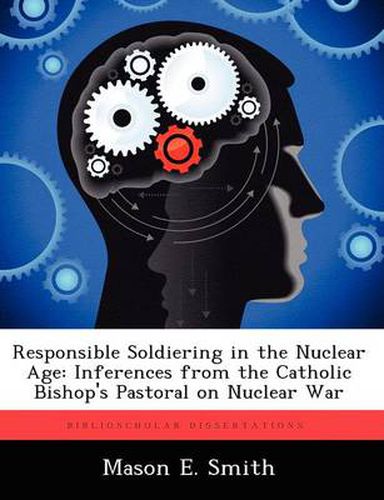Readings Newsletter
Become a Readings Member to make your shopping experience even easier.
Sign in or sign up for free!
You’re not far away from qualifying for FREE standard shipping within Australia
You’ve qualified for FREE standard shipping within Australia
The cart is loading…






This title is printed to order. This book may have been self-published. If so, we cannot guarantee the quality of the content. In the main most books will have gone through the editing process however some may not. We therefore suggest that you be aware of this before ordering this book. If in doubt check either the author or publisher’s details as we are unable to accept any returns unless they are faulty. Please contact us if you have any questions.
This study is an attempt to develop an ethic tor those who must perform soldierly duties in this era. It is an examination of core values, and how these values have been translated into military ethics and obligations with in the context of western civilization. This study uses the most recent application of just war theory. The Catholic Bishops s Pastoral on nuclear war, The Challenges of Peace: Gods Promise and our Response, and compares Its instruction to selected findings of another contemporary application The Nuremberg War Trials. The manner in which we construct and reinforce our moral values in conscious coupled with appreciation for- the sanctity of human existence, evolve as fundamental underlying conclusions. After having established the scope of authority from which the Catholic Bishop’s Pastoral derives its credibility, these principles are compared against the United States Army Ethic and a contemporary ethic is proposed. The study concludes that ultimately we are responsible for the decisions and choices that we make. Soldiers are not absolved, especially within the Judeo-Christian context, from the obligation to make choices based upon sound mora1 reasoning, simply because they are engaged in activities which run against the grain of orderly human existence. In fact, because. of the nature of soldierly obligations, the soldiers standard may be more stringent. If the forgoing logic holds, then a soldier must expect and be provided a guide or set of standards against which he can measure his contemplated action in the potential to actual nuclear environment. That set of standards, or- code of ethics. In order to be truly professional must allow for rule of conscience and assume a relationship which transcends national institutional and territorial integrity.
$9.00 standard shipping within Australia
FREE standard shipping within Australia for orders over $100.00
Express & International shipping calculated at checkout
This title is printed to order. This book may have been self-published. If so, we cannot guarantee the quality of the content. In the main most books will have gone through the editing process however some may not. We therefore suggest that you be aware of this before ordering this book. If in doubt check either the author or publisher’s details as we are unable to accept any returns unless they are faulty. Please contact us if you have any questions.
This study is an attempt to develop an ethic tor those who must perform soldierly duties in this era. It is an examination of core values, and how these values have been translated into military ethics and obligations with in the context of western civilization. This study uses the most recent application of just war theory. The Catholic Bishops s Pastoral on nuclear war, The Challenges of Peace: Gods Promise and our Response, and compares Its instruction to selected findings of another contemporary application The Nuremberg War Trials. The manner in which we construct and reinforce our moral values in conscious coupled with appreciation for- the sanctity of human existence, evolve as fundamental underlying conclusions. After having established the scope of authority from which the Catholic Bishop’s Pastoral derives its credibility, these principles are compared against the United States Army Ethic and a contemporary ethic is proposed. The study concludes that ultimately we are responsible for the decisions and choices that we make. Soldiers are not absolved, especially within the Judeo-Christian context, from the obligation to make choices based upon sound mora1 reasoning, simply because they are engaged in activities which run against the grain of orderly human existence. In fact, because. of the nature of soldierly obligations, the soldiers standard may be more stringent. If the forgoing logic holds, then a soldier must expect and be provided a guide or set of standards against which he can measure his contemplated action in the potential to actual nuclear environment. That set of standards, or- code of ethics. In order to be truly professional must allow for rule of conscience and assume a relationship which transcends national institutional and territorial integrity.